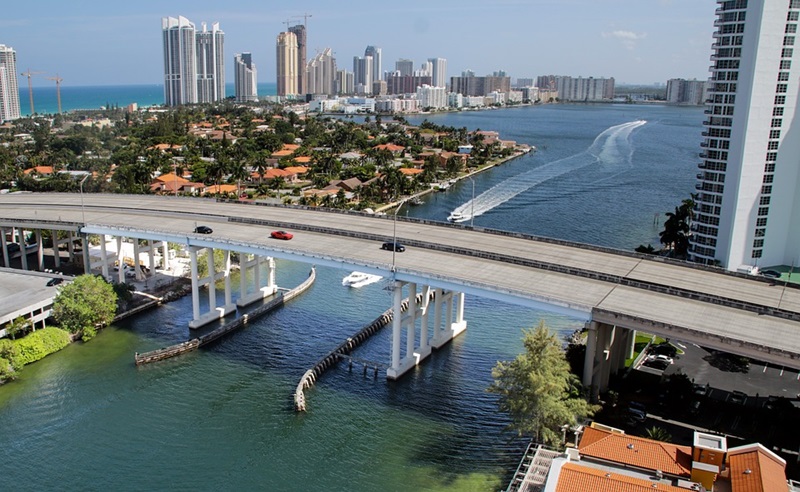Miami has transformed from a summer getaway into a significant and dynamic business hub. This remarkable evolution has solidified Florida’s position as one of the top five states for business in 2024, according to a CNBC report. The substantial influx of investments and the arrival of major companies have further elevated the region, subsequently boosting its real estate market. Miami remains one of the most promising markets for new residents, investors, and businesses.
For some time now, Miami has already established itself as a burgeoning technology hub, attracting top startups and entrepreneurs while rivaling Silicon Valley. Additionally, the city has earned the title “Wall Street of the South” due to the growing presence of financial institutions and investment funds relocating to the region, drawn by its business-friendly atmosphere and tax incentives. This combination of technology, finance, and a cosmopolitan lifestyle positions Miami as one of the most strategic cities for global business.

Business Hub
Miami leads the state in job growth, with nearly 3% more positions created in 2024 compared to the previous year. Over 30,000 new jobs reflect the region’s ability to attract new companies and professional talent.
A Strategic Destination for Fortune 500
In recent years, Miami has emerged as a strategic location for the relocation and expansion of Fortune 500 companies, solidifying its position as one of the leading business hubs in the United States. Between 2018 and 2023, Florida welcomed four new corporate headquarters from these giants, highlighting the growing preference for Sunbelt states due to tax advantages, quality of life, and modern infrastructure. Miami, in particular, has become an attractive center for companies looking to combine efficient operations with a vibrant and cosmopolitan environment.
The movement of major corporations to the region goes beyond the search for fiscal benefits. Companies are investing in modern offices strategically located to promote integration between work and innovation. In a global landscape where hybrid work models and talent competitiveness shape corporate decisions, Miami offers a unique balance: a robust operational base paired with a sophisticated lifestyle and connections to international markets.
A Thriving Ecosystem for Startups
Miami has solidified its position as one of the world’s leading ecosystems for startups, as evidenced by its impressive rise in the global Startup Genome ranking. In 2022, the city was tied at 31st place, and in just two years, it climbed to 16th. This advancement reflects not only growing local support for entrepreneurs but also the impact of standout deals, such as the $885 million acquisition of Redzone Software and the $500 million Freightos merger, which together contributed to a $2.1 billion exit value in 2023—the 13th highest globally.
Miami was also recognized as the second-best U.S. city for small businesses in 2024, according to a Coworking Cafe report. With 18% of the city’s workforce owning businesses, Miami stands out as an entrepreneurial hub, recording 5,320 business applications per 100,000 residents.
Additionally, Miami is expanding its economy beyond its traditional sectors of tourism, international trade, and real estate, moving toward technology and life sciences. The city’s Health District, the second-largest in the United States, provides a strong foundation for healthtech startups to develop and test cutting-edge technologies.
This transition reinforces Miami’s global status as an emerging tech hub, making it an attractive destination for investors and entrepreneurs seeking a dynamic and innovative environment for their ventures.
Real Estate Challenges and Opportunities
The influx of companies and, consequently, new residents and their families, has a direct impact on Florida’s real estate market. This constant flow of people, often with significant purchasing power, creates a growing demand for housing, ranging from urban apartments to homes in planned communities. While this dynamic represents a challenge for authorities tasked with managing housing supply and ensuring adequate infrastructure, it also opens up opportunities for investors.
Miami’s real estate market remains robust, with tremendous appreciation potential. Even in a scenario with fewer transactions, property prices in the city have continued to rise, driven by strong demand and the region’s enduring appeal. For investors, this combination of consistent appreciation and high demand positions Miami as one of the most promising markets for solid and sustainable returns in the long term.
